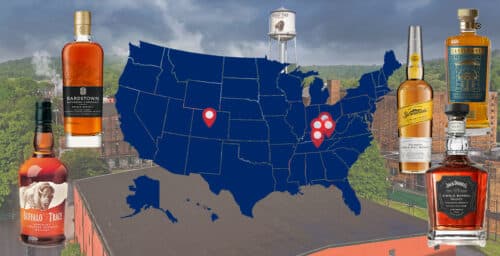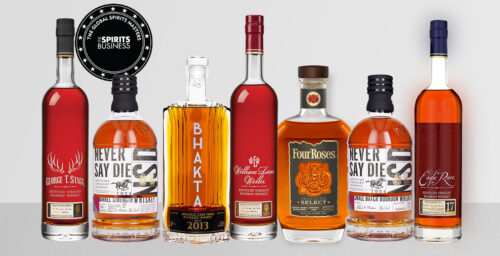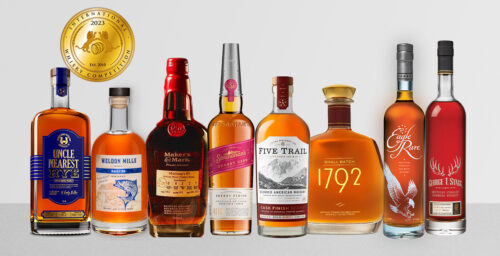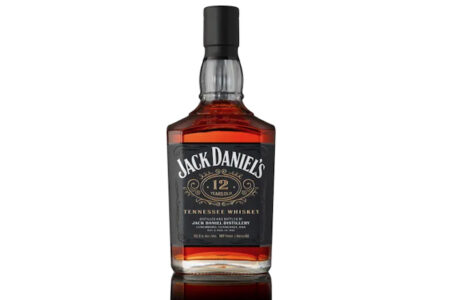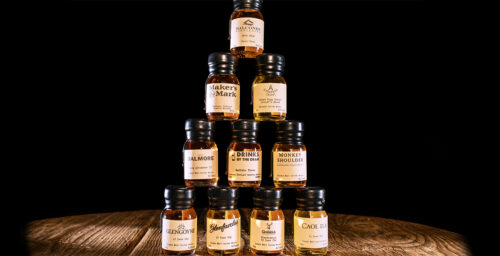As leadership in the whiskey industry continues to change, women like Jennifer Stiefel and Rosemary Ripley have made a name for themselves in the male-dominated industry as they are now leading Heritage Distilling Company.
Recently, the two merged their companies to further their mission to create national, craft distilleries.
Jennifer Stiefel is co-founder and president of Heritage Distilling Company, and for the past nine years, her leadership has led Heritage to be one of the most awarded craft distilleries in North America. She’s also the CEO of the Tribal Beverage Network, a first-of-its kind partnership with Native American Tribes to develop Heritage-branded distilleries and to serve patrons of tribal casinos and entertainment venues.
Rosemary Ripley, is CEO of Better World, and has garnered significant expertise through work for companies including Kraft Foods, Miller Brewing, Philip Morris, Heineken NV and Zevia. Combined with her private equity background, and after their merger, she has helped accelerate Heritage Distilling Company’s growth strategy.
The two of them recently visited with The Whiskey Wash about their roles as female leaders in this industry.
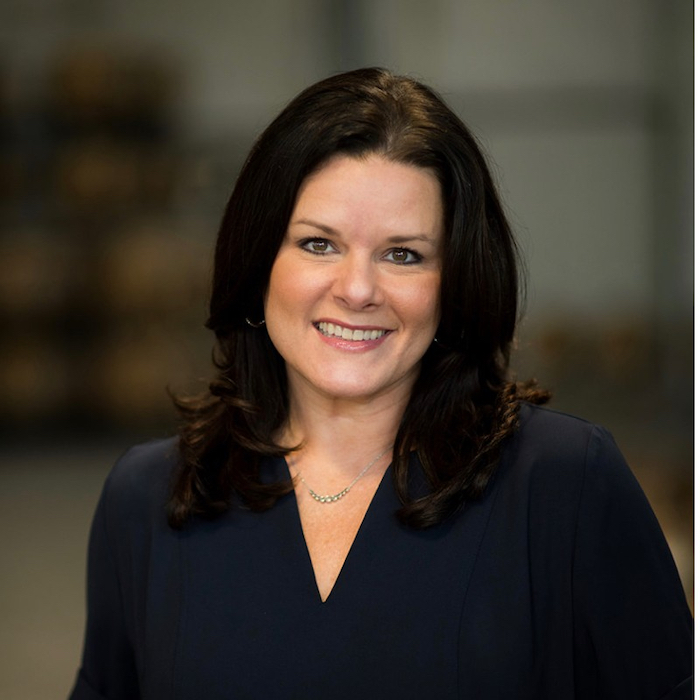
The Whiskey Wash: How did your career path lead you into the spirits industry, and what were some of the initial hurdles you faced?
Jennifer Stiefel: “I was raised in Alaska where I learned the value of hard work from my entrepreneurial parents spending time working in our ice pack manufacturing company and seafood cannery, where I learned to drive a forklift by age 12. Before distilling, my early career was in education and a short stint as a staffer in the United States Senate. I met my husband and business partner, Justin, during high school in Alaska at the age of 16.”
“In 2009, the laws in the state of Washington changed to allow for distilling for the first time since prohibition and it opened up the opportunity for us to create a new customer facing model for spirits sampling, trial and sales. In 2010, we moved from Washington D.C to our home state of Washington and settled in Gig Harbor. In 2011, we conceived Heritage Distilling Co. while sharing a drink around a campfire and immediately started writing our business plan, raising money through friends and family, ultimately opening the company in 2012.”
“One of the initial hurdles we faced was acquiring capital and, after that capital is secured, ensuring that you’re doing right by those investors who entrusted you with their hard-earned money.”
TWW: What is your relationship to whiskey and bourbon?
JS: “It’s interesting because as you evolve, your palate evolves. I was first introduced to spirits in my mid-30s. When we opened Heritage, I had a well-developed wine palate, but my spirits palate was novice, at best. Over the years, I became fascinated with whiskey and bourbon and developed a deep appreciation for the journey of distilling, aging and blending spirits. I love the story of bourbon – where the corn, wheat, rye and other grains come from, the story behind the farmer, and the aging process. At Heritage, we say ‘every spirit has a story,’ and it’s especially true when it comes to whiskey. I would say that with whiskey, there’s a story and a complex life cycle that intrigues me.”
TWW: What brought you to work with tribal nations and help break down barriers in that sector of the spirits industry?
JS: “When the Chehalis tribe first came to us to open a brewery, Justin said, ‘We don’t make beer,’ and the craft beer market is about to peak just as the craft spirits market is about to explode. We talked through the products and market and they agreed to open a combined brewery and distillery, combining some of the core processes shared by both production methods.”
“As we went down this path, we looked politically and economically at what was happening within tribes. Tribes in the tobacco space see the writing on the wall, the fact that the federal government and many state governments are trying to eventually end access to nicotine through tobacco, which will kill that engine that many tribes have relied upon for decades.”
“Similarly, the move to electric vehicles means less gasoline sold through tribal gas stations, putting those high-value pieces of their economies at risk. And with the average age of their casino patrons now between 55-70 years old, the savvy casino managers know they need to create amenities and attractions to bring the next generation of patrons to their facilities.”
“Because spirits are the fastest growing segment of the adult beverage market, having a distillery and tasting room on property is the best growth engine they can add. For tribes who have bars and restaurants in and near their casinos, they are already in the alcohol business, yet they are forfeiting two-thirds of the economic value chain by not making the products they sell.”
“As the Chehalis project gained momentum, the Tribe was informed by the Bureau of Indian Affairs in 2018 that there was a law from 1834 on the books prohibiting them from opening a distillery. So in April 2018, the Chehalis Tribe and Justin began lobbying Congress to repeal that 184-year old statute. By December of that year, Congress had unanimously passed the bill repealing that old law, opening up a new wave of opportunities for all tribes across the Lower 48.”
TWW: What economic opportunities will be available through the Tribal Beverage Network in the near future?
JS: “We are growing our footprint with several new locations with tribes across the U.S. that will ultimately establish new jobs and industries in the community. We aim to support tribes on their journey to create unique products customized for their Tribe to generate high-margin revenue, collect tax, allow them to capture more of the vertical margin, and create customer-focused amenities for a new generation of patrons.”
TWW: What is HDC’s business model and what makes it unique?
JS: “In addition to our brick and mortar tasting rooms, and our online business, our Tribal Beverage Network is how we hope to change the industry. We founded TBN to collaborate with Native American tribes to develop Heritage Distilling-branded tasting rooms, to sell the highest quality craft spirits and to help the tribes utilize our learnings to accelerate their product development and supercharge their launch in this industry. The TBN network has created compelling social and economic benefits for participating tribal communities.”
“The TBN is a differentiated, mutually beneficial distribution channel with unique access to a network of Native American tribal properties which creates the opportunity for a recurring revenue base, tax-advantaged sales, and no/low capex. For the Heritage Distilling TBN partner tribes, this creates economic empowerment by creating a new, highly profitable additional revenue source and job creation. The profitability is enhanced by the tribe’s ability to keep the state taxes on spirits they produce while exercising tribal sovereignty. An additional incentive is the opportunity to create new brands with local, sustainably-sourced ingredients.”
TWW: What challenges did you face being a female in this male-dominated realm?
JS: “In some ways, the spirits industry is antiquated. There are a lot of old laws and multigenerational businesses that dominated the way spirits have been distributed and sold. But the industry is growing and adapting, especially in craft distilling.”
“In my experience, the craft distillery space is now where the craft beer space was 25 years ago. Consumers are just now beginning to discover their spirits palates and they are seeking new products and new flavors. Being on the forefront of that effort is exciting, and bringing a female perspective to the table in terms of truly understanding what half the consumer population wants, is important.”
“When I entered the sector more than a decade ago, it didn’t feel like a male-dominated industry because our business model didn’t really exist yet. We were a family run business in a community in the Pacific Northwest that was incredibly supportive of the business we were building. So I do consider myself part of a pioneering group, and that experience builds a strong community of women in spirits.”
TWW: What impact do you feel you can have in this industry in relation to the barriers we discussed?
JS: “First, I think you must lead by example. Those who have a positive impact on the industry will prevail. I think Heritage Distilling is at the forefront of the movement. Our leadership is mostly female, and our culture encourages women to continue to take their seats at the table. We have an inclusive team that supports one another and ensures we are moving in the same direction.”
*
TWW: What was your career path that brought you to the CEO position at Better World and to the merger with HDC?
Rosemary Ripley: “I have spent my career in finance working with and for companies, many of which have been in the consumer industry. Since 2007, I’ve been a partner at NGEN, a private equity company working with ESG growth companies and in 2020, our team of three partners decided to launch Better World.”
TWW: Explain the merger and how it benefits the spirits industry.
RR: “Better World is merging with Heritage Distilling and the immediate benefits will be to supplement Heritage’s access to experienced talent and capital. Heritage has a differentiated concept in partnering with Native American tribes in a turn-key, efficient model for distilling and selling premium spirits on tribal lands. With the addition of incremental capital and expertise, Heritage and the partnership with Native American tribes should be able to scale and grow more quickly.”
TWW: What were the challenges you faced coming up in a male-dominated industry?
RR: “The truth is that I only focused on the opportunities and how to identify and excel in exciting and interesting work, so it’s not easy for me to cite the challenges. As I look back on it today, the biggest change in the workplace that would have made life easier is a more flexible workplace. This obviously benefits everyone, and would have certainly made my life easier as a single parent for a large portion of my career.”
TWW: How has your financial background applied to growing the Heritage Distilling Company model?
RR: “I think my experience has helped the company streamline how it thinks about the business and focus on specific priorities. I also have been able to leverage my network to be helpful in building the board. But it is early days, and we should continue this discussion next year!”
TWW: How do you successfully build and scale a national craft distillery brand?
RR: “This is a really important question and something that very few companies have been successful at. Our plan is by building our distribution through wholesale and partnering with our tribal partners, we will be able to successfully create a national network far more efficiently than we could otherwise accomplish. We expect to create a hub and spoke system where there will only be a handful of distilleries supported by bottling, warehousing and retail operations in adjacent locations, leveraging spending on production, storage and marketing and minimizing transportation costs.”
TWW: With prominent female leadership, what advantages does your team have?
RR: “We hope that our leadership team will be inclusive, leading by example and collectively leveraging the company’s talents and experience. We also hope that through the use of consumer insights and data, we will be able to make our products appealing to a wide demographic base.”
TWW: What are future goals for this endeavor?
RR: “Our goals are to make Heritage Distilling a leading national craft brand. In the process, we hope to make the company an exciting and rewarding place to work for our employees, a strong partner for our stakeholders, and a very attractive investment for our shareholders and investors.”

